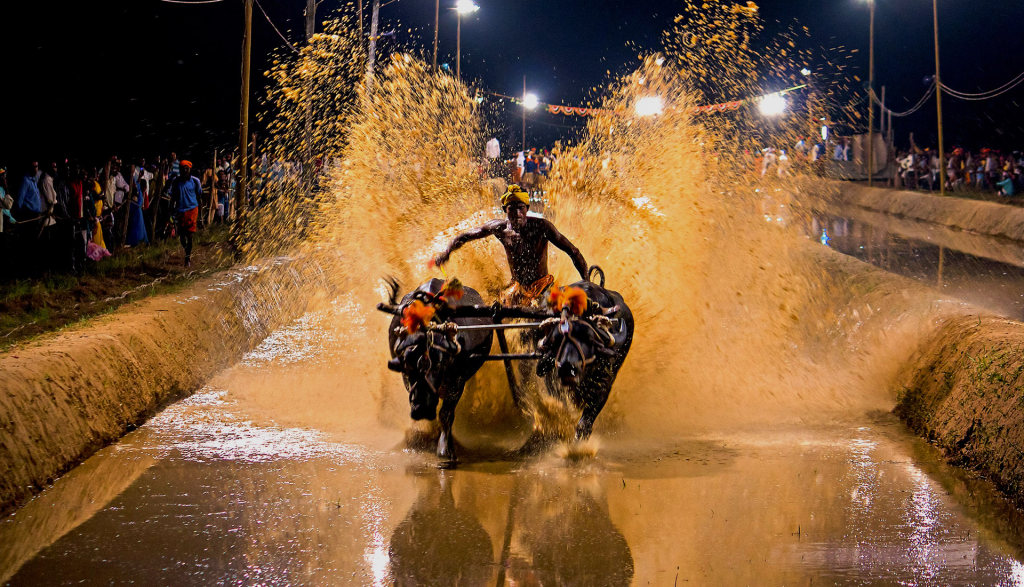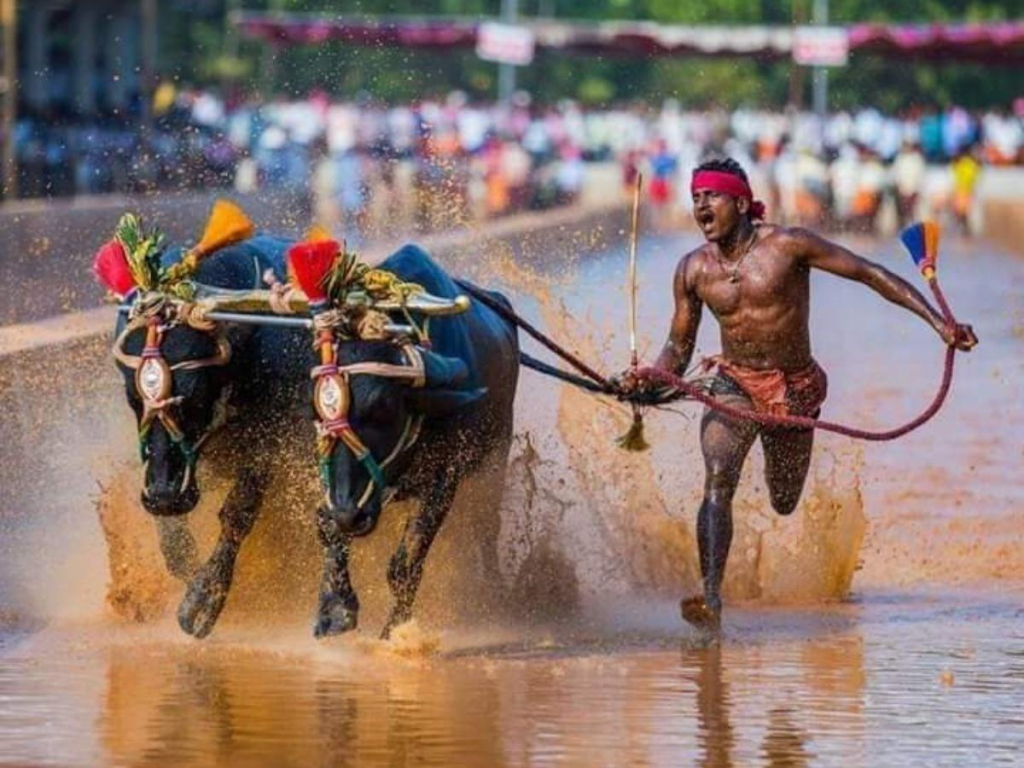Introduction:
Karnataka, a land blessed with diverse traditions and vibrant festivals, is home to the captivating Kambala Festival. Also known as the Buffalo Festival, Kambala is a unique and exhilarating celebration that showcases the deep-rooted connection between humans, animals, and nature. This centuries-old festival holds immense cultural significance and has become a prominent symbol of Karnataka’s rich heritage. Join us as we embark on a virtual journey to explore the captivating world of Kambala, where tradition, athleticism, and community come together in an extraordinary spectacle.


The Origins of Kambala:
Kambala traces its origins back to ancient times when it was primarily practiced as a form of traditional buffalo racing by the farming communities of coastal Karnataka. Historically, Kambala served as a means to test the physical strength and agility of the buffalo pairs, which were used for plowing fields. Over time, this agricultural sport evolved into a grand festival, deeply rooted in cultural and religious beliefs.
The Kambala Festival Experience:
The Kambala Festival typically takes place between November and March, coinciding with the post-harvest season. The festival commences with a grand procession led by a group of musicians and dancers, who create an ambiance of joy and celebration. The main attraction of Kambala is the buffalo race, where pairs of buffaloes are skillfully driven by farmers through a water-filled slush track. The farmers, known as “jockeys,” exhibit incredible dexterity as they stand barefoot on the wooden planks tied to the racing buffaloes.
The Kambala Track:
The track for Kambala is carefully prepared, with water being poured onto the soil to create a slushy and slippery course. The buffaloes, adorned with colorful harnesses and bells, sprint along this track while the jockeys encourage them by cracking whips and shouting words of encouragement. The speed, agility, and raw power of the racing buffaloes are truly awe-inspiring, and witnessing the event live is a thrilling experience.
Celebrating Tradition and Community:
Kambala is not merely a spectacle of athleticism but also a celebration of community and tradition. The festival provides a platform for farmers and their families to come together, fostering a sense of unity and solidarity. It serves as a reminder of the vital role agriculture plays in the lives of the people of Karnataka. The festival also includes cultural programs, folk dances, traditional music performances, and delicious local cuisine, allowing visitors to immerse themselves in the rich cultural tapestry of the region.
Preserving Tradition in the Modern Era:
In recent years, Kambala has faced some controversies due to concerns over animal welfare. To address these concerns, modern Kambala events have introduced various measures to ensure the safety and well-being of the racing buffaloes. Strict regulations, including veterinary inspections, limitations on the distance and duration of the race, and improved track conditions, have been implemented to promote responsible and ethical conduct during the festival.
Conclusion:
The Kambala Festival of Karnataka is a remarkable cultural extravaganza that combines tradition, sport, and community. Its deep roots in agriculture and its ability to bring people together make it a cherished event in the state. Whether you witness the thrilling buffalo races or immerse yourself in the vibrant cultural performances, Kambala offers a glimpse into Karnataka’s rich heritage. As the festival continues to evolve, it is crucial to strike a balance between tradition and animal welfare, ensuring the preservation of this unique celebration for generations to come.